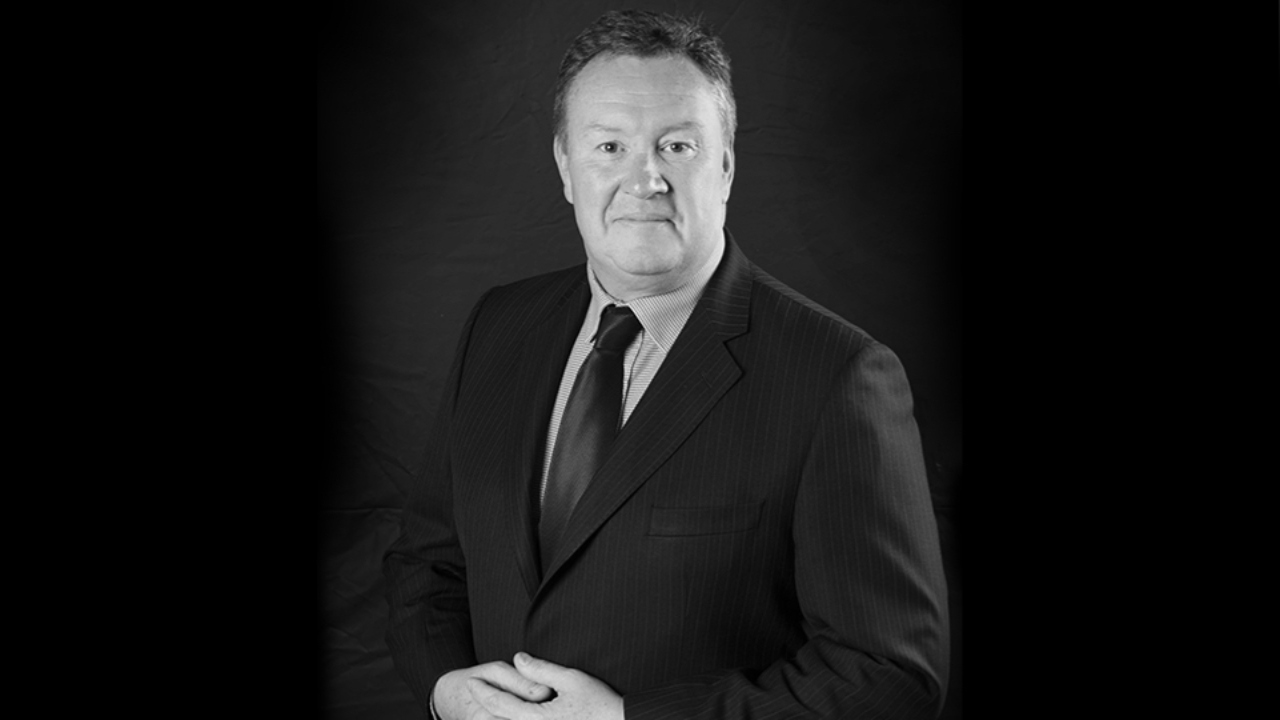This year, Guy Lean is celebrating his 20th anniversary at Madison Mayfair and, as such a stalwart hospitality industry, we thought who better to kick off our 2024 Success Story series.
Having studied recreational management in college, Guy’s journey into recruitment was not a conventional one. His early experience at Royal Mid-Surrey Golf Club led to his first role in recruitment where he quickly realised the importance of nurturing personal connections as he carved his career path through sales, training and recruitment, with some help from Dr Seuss along the way.
At Madison Mayfair, Guy’s focus goes beyond merely placing candidates in roles, but rather measured by their long-term achievements of these placements, underlining Guy’s commitment to nurturing meaningful and lasting relationships for both his candidates and clients alike.
In this interview, Guy shares his rich experiences, insights, and perspectives on the recruitment landscape, offering valuable advice and observations that stem from a career built on genuine connections and a deep understanding of the industry.
Please tell us more about your career path and how you become known as one of the best-connected recruiters in the hospitality industry.
Recruitment isn’t really one of those careers that you study in college and then start head-hunting. Like many of my peers, I fell into it somewhat. After finishing my studies in recreational management, with the initial goal of managing a leisure centre, I found myself at The Royal Mid-Surrey Golf Club in Richmond. There, I was not only involved in selling events but also managed the bars and looked after the events themselves. This was my first real exposure to high-quality hospitality and the art of connecting with people on a daily basis.
While at the golf club, a member noticed my potential and asked what my future plans were. He offered me a job at his recruitment firm back in my hometown, Cambridge. I started placing salespeople in various industries including agricultural machinery and pharmaceuticals, working with anybody that sold anything across East Anglia. This job was a real ‘school of hard knocks.’ It involved picking up the phone hundreds of times a day, making connections and really understanding sales.
I then moved to work for a pharmaceutical recruiter, specialising in the niche area of tamper-evident packaging. This was a significant step in my career, as I eventually became the number one recruiter in the US, while still based in Europe. This led to me being headhunted by Humana International to help sell franchises and teach franchisees to become head-hunters in their respective fields. Humana was eventually sold to an even bigger company called MRI and I became their Global Head of Training while also out there selling franchises.
Mentorship played a crucial role in my career development. I was fortunate to work with and learn from prominent figures in the recruitment industry, like Tony Byrne and Steven Finkel. These experiences not only shaped my skills but also instilled in me the importance of mentoring others. I’ve trained and hired many individuals over the years and take pride in seeing them achieve great success in their careers.
In recruitment, statistics play a significant role, even though it’s very much a human-centered field. It takes about 75 conversations to find the right person for a job, someone who would truly excel in their role.
Our approach at Madison Mayfair involves understanding and connecting with a vast network of people – around six and a half thousand in each market. These individuals are not just clients or candidates, but they are all people with unique needs and aspirations. We are proud to say that most of the clients we work with have been candidates in the past.
Can you share your top tips for candidate who might be preparing for interviews in 2024.
I’ve always said that when we’re interviewing, we’re all in sales. Regardless of what role you might be applying for, and whoever you are in front of, you’re selling.
I think you have to follow a sales process and preparation is everything. I would suggest reading a sales book and my top recommendation is “Green Eggs and Ham” by Dr. Seuss which gets to the essence of sales faster than any other book.
From there, researching the company and having excellent questions are great ways to build rapport. Technically, most candidates who get to interview stage could probably do the job, but in most cases, it’s the most enthusiastic person who gets it.
Are there any industry technologies that you are excited to see continue to develop. Conversely, are there any industry technologies you would prefer never to see again?
I believe that certain technologies, particularly those aiding in research and networking, are incredibly beneficial. LinkedIn, for instance, has significantly transformed the recruitment landscape. Its ability to facilitate connections and provide instant access to individuals’ backgrounds is invaluable. This tool is essential in our industry, to the extent that if someone isn’t present on LinkedIn, they might not even be considered a viable candidate.
In terms of communication preferences, I’ve noticed a generational shift. Younger individuals often prefer text messages or platforms like WhatsApp over traditional emails or phone calls. These tools have been effective in connecting with people in ways they are more comfortable with.
However, there’s a downside to technology when it oversteps and replaces human interaction. In our industry, which is very personal and deals with people’s careers and lives, losing the human touch can be detrimental. For example, when companies provide feedback or rejection via email, it can feel impersonal and inadequate. Human connections are vital, and technology should not overshadow them.
While I am relatively new to AI and its applications, I can see its potential, especially in speeding up processes like research and initial connections. It’s a remarkable tool for gathering information and bringing back relevant findings quickly. However, the recruitment process in hospitality still requires a balance. While technology can expedite certain aspects, the final stages of interviewing and truly understanding what people want and need must be done through direct human interaction, either face-to-face or via video conferencing. This balance ensures that while we embrace the advantages of technology, we do not lose the essence of personal connections that are fundamental to the hospitality industry.
Business travel is getting closer to pre-pandemic levels of spend, but many analysts, feel that it will never be the same. Do you feel that candidate expectations have changed regarding travelling for business?
I believe there are two main elements to consider. Firstly, there’s a heightened focus on the carbon footprint. People have become more environmentally conscious than ever before, and a genuine shift in focus towards sustainability is influencing decisions to travel less.
Secondly, the importance of maintaining relationships plays a significant role. While the pandemic demonstrated the effectiveness of video conferencing for meetings, which had not been widely popular before, certain aspects of business, such as the MICE (Meetings, Incentives, Conferences, and Exhibitions) market, team building, and relationship building, still necessitate physical travel. In these areas, face-to-face interactions are essential and irreplaceable.
An interesting observation I’ve made is that fewer people are now relocating for work post-pandemic. There seems to be a change in mindset where individuals are more content to stay in their area, seeking a different balance in life and work. This contrasts with the previous norm, especially among general managers in hospitality, where career advancement often meant travelling globally to gain diverse experiences. Now, many seem more satisfied with remaining in their local area.
However, this shift in perspective towards travel and relocation seems to vary between generations. For instance, I’ve noticed that younger generations, like my two sons in their early 20s, are driven by experiences and the desire to travel. They work hard and then use their earnings to travel extensively. This love for experiences and exploring the world seems more pronounced among them, whereas the older generation appears less driven to relocate or travel extensively for work purposes.
What do you feel are the most important traits for hospitality leaders to demonstrate?
For me, the most important traits for high-level leaders centres around emotional intelligence. Leaders who exhibit high emotional intelligence can better communicate with their team, providing information effectively and motivating their teams while displaying empathy and impeccable social skills.
The most successful leaders generally display a strong self-awareness of their own emotions that helps them understand that people often leave jobs due to poor relationships with their supervisors or a lack of connection with the leadership. They can create work environments where employees feel valued, understood, and motivated, leading to better retention and a more positive workplace culture. It’s not always about monetary compensation but more often about the quality of the work environment and the relationships within it.
What do you feel has been your biggest achievement and why?
I’ve placed over a thousand people in their careers, many of whom have risen from their first jobs to C-level positions but I feel my biggest achievement has been my work with people and teams. I’ve had the incredible fortune of working with extremely talented individuals throughout my career, and the amount I’ve learned from these experiences has been immense.
At Madison Mayfair, we have a unique focus: we aim to ensure a return on investment for the candidates we place. Our measure of success isn’t just about filling positions. We look at their progress after 12 months. We follow up to see if they were promoted, if they hit their KPIs, met their targets, or received bonuses. I’m particularly proud of this aspect because it signifies that we’re genuinely contributing to the career growth and success of individuals and our clients’ businesses.
I am also very proud of the reputation and regard Madison Mayfair has earned in the marketplace. We’re a boutique firm and take pride in the quality of our work and the lasting relationships we build.
Often, candidates come back to us as clients, and companies return to us for our services, which is a testament to the effectiveness of our approach. Just recently, I had a conversation with someone who had been with a company for six years and reached out to us because of our longstanding work with them.
This kind of feedback and repeat collaboration reinforce that we’re doing something right. I’m extremely grateful for the great teams we have and the collaborative efforts that contribute to these successes.
What is the best piece of advice you have been given on your career journey?
I think the best bit of advice I’ve ever been given is, “put your brain into gear before you put your mouth into motion.”
Madison Mayfair focuses on forging strong, long-standing relationships with clients and candidates, often over the lifetime of multiple roles, to ensure we can find creative and innovative solutions to the challenges we all face in the hospitality industry.
To discuss how we can support your businesses with your overall people strategy or to access our full suite of human capital services through Hospitality People Group, please get in touch with Guy Lean on Tel: +44 20 8600 1180, Mob:+44 7813 009787 or Email: guylean@madisonmayfair.com

